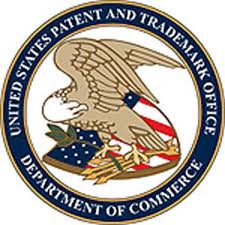Patents
A patent for an invention is the grant of an exclusive right to prevent others from doing what's specified in the claims of the patent. A patent is issued by the United States Patent and Trademark Office. Generally, the term of a new patent is 20 years from the date on which the application for the patent was filed in the United States or, in special cases, from the date an earlier related application was filed, subject to the payment of maintenance fees. U.S. patent grants are effective only within the United States, U.S. territories, and U.S. possessions.
The right conferred by the patent grant is, quoting the patent statute, "the right to exclude others from making, using, offering for sale, or selling" the invention in the United States or "importing" the invention into the United States. What is granted is not the right to make, use, offer for sale, sell or import, but the right to exclude others from making, using, offering for sale, selling or importing the invention. Once a patent is issued, the patentee may enforce the patent through the use of a civil patent infringement lawsuit.
There are three types of patents:
1) Utility patents may be granted to anyone who invents or discovers any new and useful process, machine, article of manufacture, or composition of matter, or any new and useful improvement thereof;
2) Design patents may be granted to anyone who invents a new, original, and ornamental design for an article of manufacture; and
3) Plant patents may be granted to anyone who invents or discovers and asexually reproduces any distinct and new variety of plant.
Although the US Patent & Trademark Office offers inventors the option to file a provisional patent application, there is no such thing as a provisional patent. A provisional patent application is merely a placeholder, or a device to lock in an inventor's filing date. Nonetheless, there are situations where a provisional application is the best option. A nonprovisional patent application or PCT (Patent Cooperation Treaty) application must be filed within 1 year of the provisional application filing date or the applicaiton becomes abandoned.
Related Links:


 US Patent and Trademark Office (USPTO)
US Patent and Trademark Office (USPTO) World Intellectual Property Organization (WIPO PCT)
World Intellectual Property Organization (WIPO PCT)